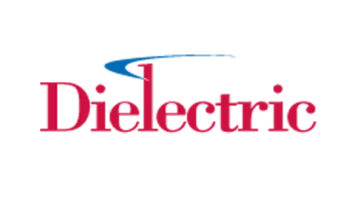WASHINGTON — A late push led by the National Association of Broadcasters could alter how the FCC distributes money to FM radio broadcasters for facility expenses incurred as a result of the TV spectrum repack in the United States.

The FCC as of early November was still putting the finishing touches on the rulemaking (MB docket No. 18-214) for its payment plan for LPTV, TV translators and FM radio stations. Yet recent comments by NAB made it clear the group was not happy with the “sliding scale” of reimbursement proposed.
The money available is designated by the $1 billion Reimbursement Expansion Act (REA) adopted by Congress in March. Changes to the facilities of TV stations in the spectrum repack could affect collocated FM stations if, for example, an FM station antenna must be moved, temporarily or permanently, to accommodate the TV station’s change or if an FM needs to power down or cease operating temporarily to permit a repacked TV broadcaster to modify its facilities. The commission estimates that up to about 500 full-service FM stations could be affected.
The initial phase of TV repack tower work is underway, so some FM radio stations are likely already being impacted, according to NAB, with “the first tranche of TV stations slated to complete their cut over by Nov. 30,” according to an association official.
Under the three-tier “prioritized” proposal released in August, FM stations going off-air for more than 30 days would receive reimbursement for 100 percent of their expenses to construct or modify existing aux facilities. However, FM stations off-air between 11 to 30 days would receive reimbursement for only 75 percent. It drops to 50 percent for stations off air from one to 10 days.
“While NAB generally supports the commission’s proposals with respect to both FM radio and LPTV stations’ eligibility for reimbursement, the commission should not adopt a sliding scale for FM radio reimbursement based on the length of time a station will be off the air,” the NAB wrote. “This misguided proposal is wholly unnecessary, especially absent any indication that funding will be insufficient to reimburse all disrupted FM radio stations.
The NAB continued, “It is also unduly restrictive and appears to be based on erroneous assumptions concerning the impacts of relatively brief disruptions of service. Further, it would have significant unintended consequences that would disproportionately impact small and rural radio stations and their listeners.”
The association stated that the proposed graduated scale of reimbursement for FM stations would have devastating consequences, particularly for small FM broadcasters. One official described the proposed graduated reimbursement scale as “draconian and disconnected.”
Said a person familiar with NAB’s position: “Smaller stations just don’t generate the revenue to be able to absorb the costs if the FCC is going to say, ‘Hey, we are only going to reimburse you for 50 percent of your costs to construct backup facilities if you are disrupted for only a week.’ So that station might choose an option to spend less to cover a smaller part of their listening area and not incur the additional cost.”
The FCC is proposing that only FM stations licensed and on the air as of April 13, 2017, and using facilities affected by a repacked television station should be eligible to receive funding.
The commission also proposes that in order to qualify, an applicant FM station must maintain at least 80 percent of its coverage area or covered population via the interim facility, to provide reasonably minimal disruption of service for listeners.
Yet to be determined is whether FM translators will be eligible for reimbursement for expenses, according to those familiar with developments. The NAB supports the idea.
LPFM stations will be eligible for reimbursement funds. REC Networks, a LPFM advocacy group, said it was not aware of any LPFM stations being directly threatened with displacement by tower owners because of TV repack work “but can’t assume that LPFM stations will be immune from the impacts of the repack.”
WILL THEY RUN SHORT?
The first reimbursement checks will be written in 2019 with distribution of funds completed by 2023, according to the law enacted by Congress. It approved $600 million for the reimbursement of LPTV, TV translators and FM radio stations in FY2018, with not more than $50 million being used for radio. Another $400 million was allotted for FY2019 but places no cap on how much could be used for FM stations.
NAB says the REA provides the FCC flexibility to determine how to allocate FY2019 funds. Yet observers told Radio World they are anxious to see if the FCC caps the FM radio allotment for FY2019.
“It’s possible the FCC could run short on dollars for FM radio. That is why it’s important the FCC adopts an approach that could streamline the process and minimize expenses,” said a person familiar with the proposed rulemaking.
The National Translator Association pitched a fast-track idea for TV translators that would streamline filing requirements for small entities and possibly cap reimbursement at a reasonable level. The group’s proposal, which limits repack expenses to $31,000, would not require stations to submit preliminary proposals or estimates. The NAB is supportive of the NTA’s suggestion.
“I think the FCC could find a path to expand such an idea to LPFM or other small FM entities. I think conceptually that type of proposal would work,” said an NAB official familiar with the NTA proposal.

Potential expenses involved are estimated in a 20-page “catalog” that the FCC released in October. It worked with broadcast equipment manufacturers and tower companies to establish a price range for these equipment and services.
The Reimbursement Expansion NPRM and Order proposes to reimburse FM stations for both “hard” expenses, such as new equipment and tower rigging, and “soft” expenses, such as legal and engineering services.
For example, the range of estimated costs for a 7 to 10 kW air-cooled solid-state FM transmitter is $41,000 to $75,350 (not including installation). A 7 to 10 kW liquid-cooled solid-state FM transmitter has an estimated cost of $66,850 to $139,850 (not including installation). Transmitter installation estimates vary widely from $11,000 to $130,000, according to the list.
The FCC’s catalog also includes a FM section with transmission line and antennas priced per bay plus other costs FM stations could incur.
“The LPTV/Translator/FM Cost Catalog also includes a category for ‘Other Expenses’ including FCC filing fees and point-to-point microwave systems, with corresponding cost ranges,” according to the FCC public notice of the catalog’s existence.
But the commission emphasized that the categories and costs “are intended to serve as a reference guide, and are not intended to identify the particular expenses” for which stations would be eligible for reimbursement. Read the document at https://tinyurl.com/rw-fcc-repack.
When contacted by Radio World for this story, the FCC said it does not comment on pending rulemaking.
CAREFUL RECORD-KEEPING
Lee Petro, special counsel at Pillsbury Winthrop Shaw Pittman in Washington, has been tracking developments and said some of his radio clients have already been affected by TV repack tower work. He advises FM broadcasters facing service disruption to keep track of expenses and keep a timeline of events.
“FM broadcasters will need to categorize the number of work hours for staff, attorney, engineering consultants and any items that would fall under reimbursable expenses,” Petro said. “There is no reason not to sit down and work your way through best- and worst-case scenarios no matter what phase of TV repack work will impact their operations. Be as proactive as possible.”
Petro said if previous experience with his clients is any indication, the reimbursement process will be a fairly detailed process.
“FM stations will need to submit an initial estimation of costs and then you can likely expect a series of questions back from the administrator managing the process,” Petro said. “I would expect there will be some form of graduated reimbursement scale regardless of the NAB’s complaints.”
NAB said in FCC filings that it envisions a reimbursement system that is “more than just submitting invoices and probably will include cost estimates from vendors.”
Petro recommends radio stations do their best to limit expenses and therefore limit the hassles of seeking reimbursement.
Since TV repack construction will affect commercial and noncommercial FM operations, National Public Radio filed a comment that “encourages the FCC to maximize reimbursement so the stations can minimize service disruptions.” NPR also expressed opposition to the FCC’s graduated reimbursement proposal.
NAB in its comments also asked the FCC to be sensitive to the implications of the TV repack on bystander stations that have nothing to do with the broadcast spectrum incentive auction. “The repack is not an Act of God. It’s the result of policy choices made by the commission.”
The Reimbursement Expansion Act adopted by Congress earlier this year set a March 23, 2019, deadline for the FCC to issue final rules for repack reimbursement. The FCC cannot disburse any funds until those final rules are released.










